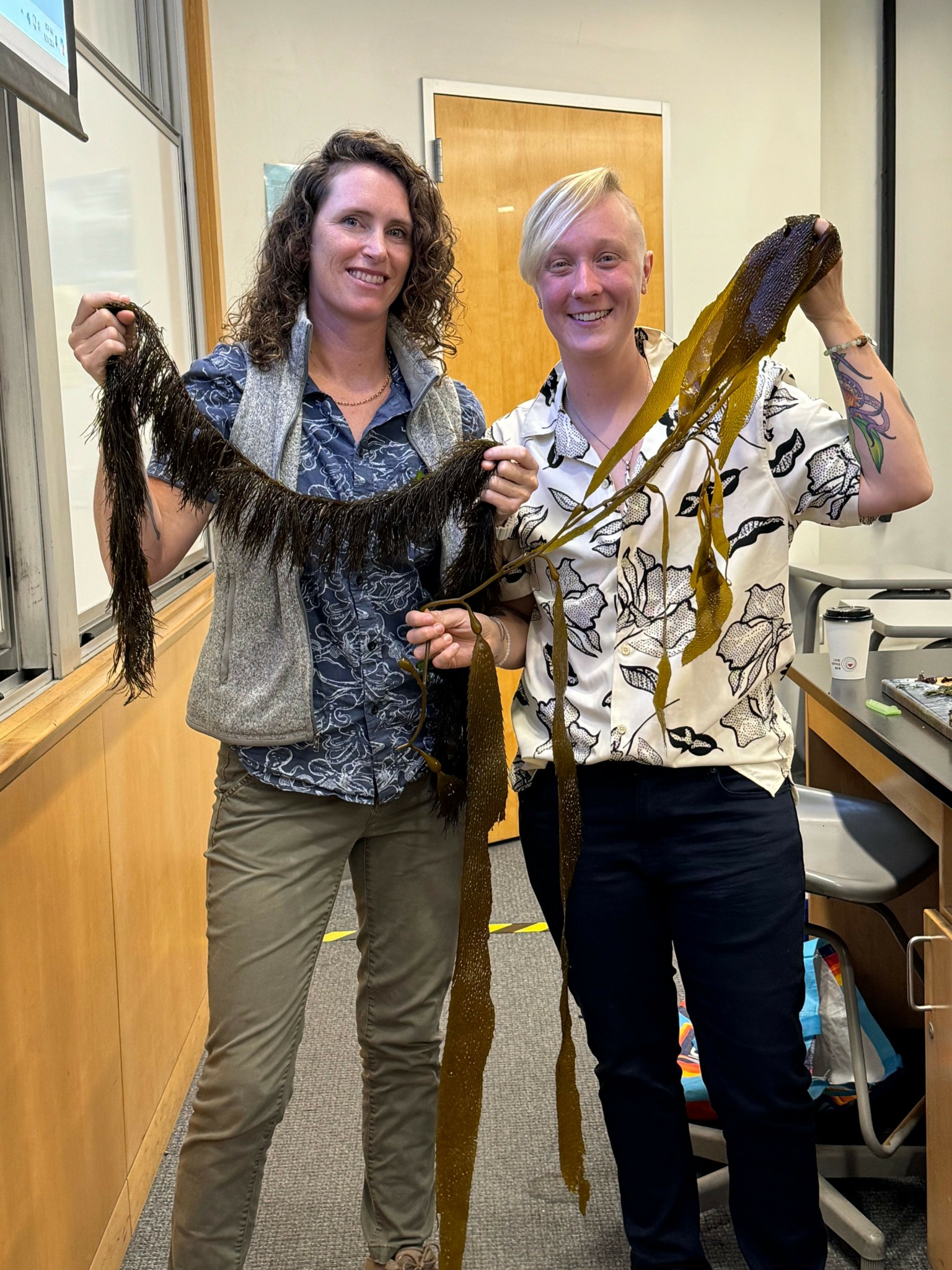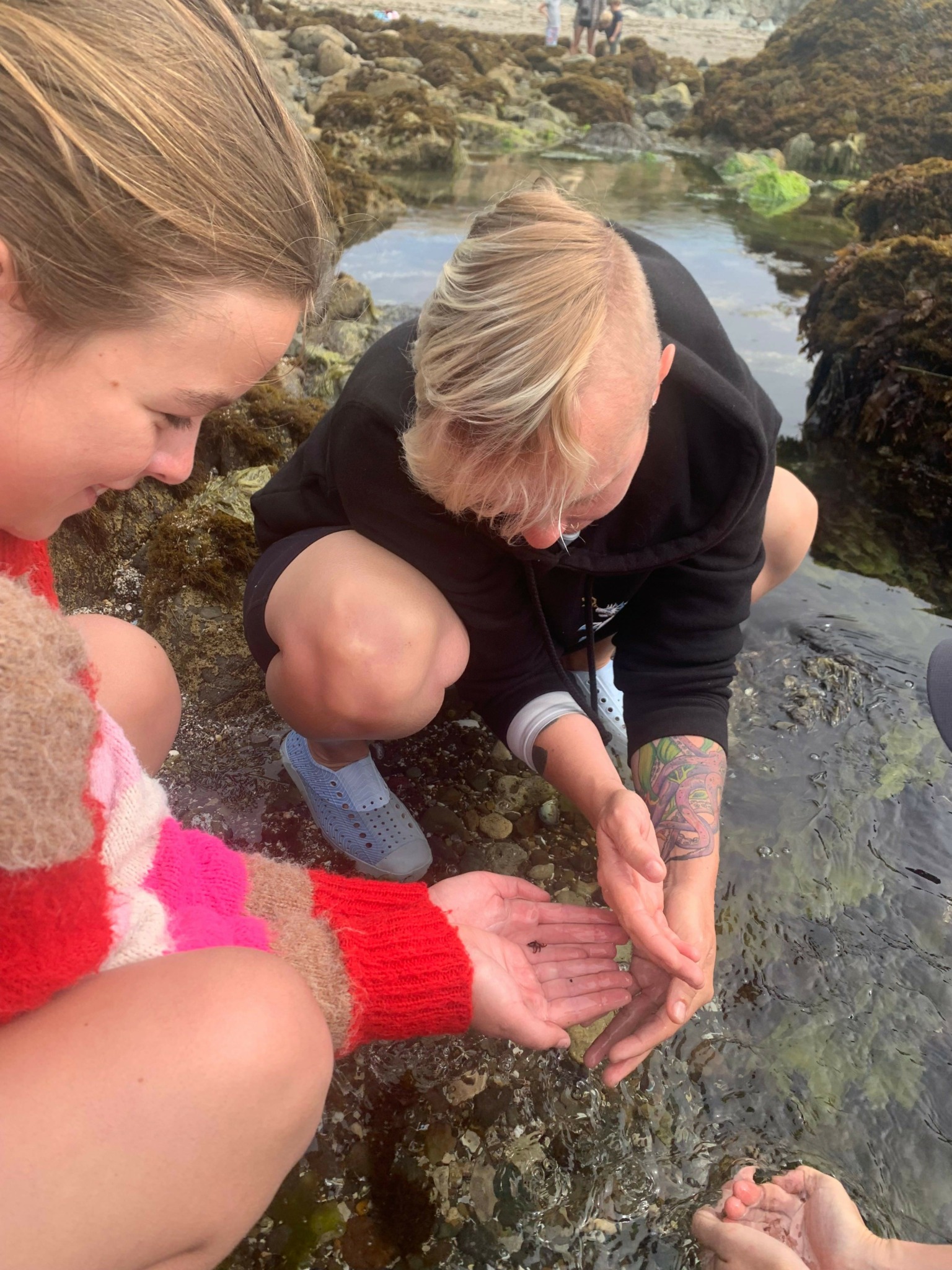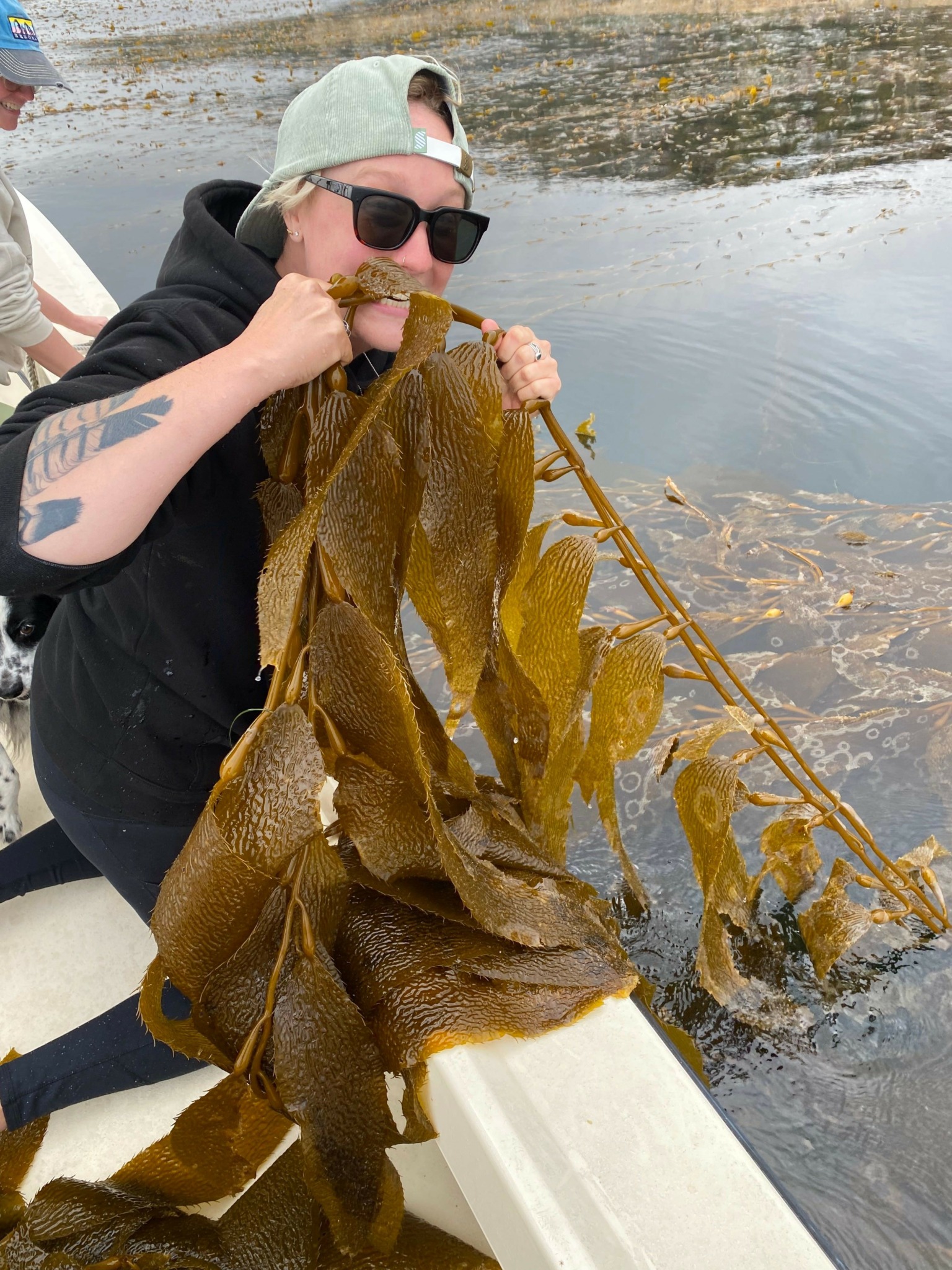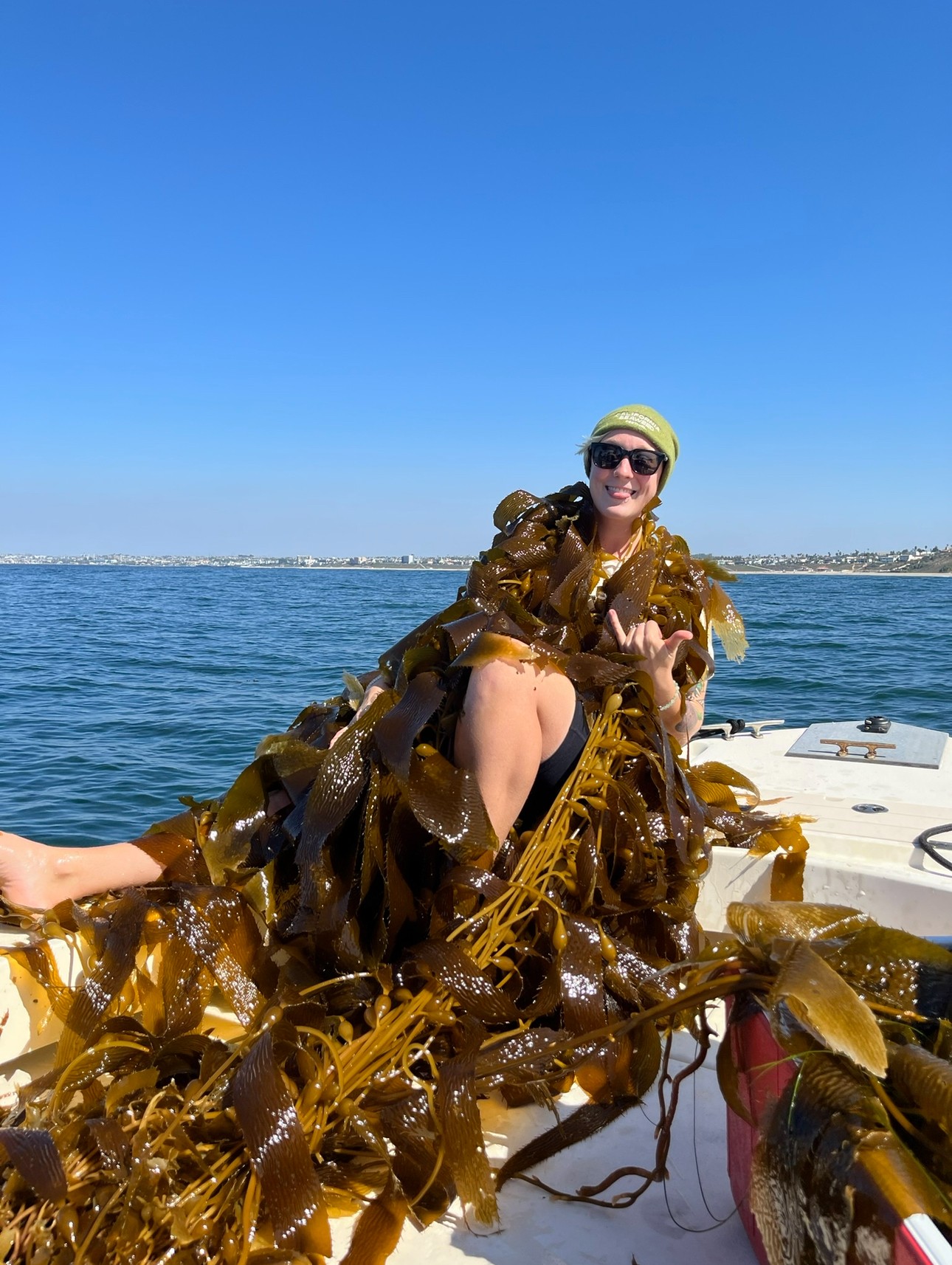We’re excited to introduce you to the always interesting and insightful Jules Marsh. We hope you’ll enjoy our conversation with Jules below.
Hi Jules, thanks for joining us today. Risking taking is a huge part of most people’s story but too often society overlooks those risks and only focuses on where you are today. Can you talk to us about a risk you’ve taken – it could be a big risk or a small one – but walk us through the backstory.
Kelpful has had quite the journey since the starry eyed dreams of having a seaweed farm back in 2017. We learned very quickly that it wasn’t possible to have a seaweed farm in the open ocean in California, yet. This led us down two paths: networking and supporting the industry and agencies in making that possible & wild harvesting seaweed so that if/when we had our own farm, we would know how to process it and also build the market and consumer awareness. From 2020 to 2023 we developed phenomenal food and self-care products, built a well-known brand, and were in stores like Whole Foods. We went this direction because at the time, and it’s still true today, it’s what the seaweed industry in the US really needed. There was a lot of risk involved in pursuing a CPG brand and products, we bootstrapped almost our entire journey, taking on business loans and credit card debt to support a growth in scale, which was a huge financial risk, but one we had hoped would pay off. Personally, I made the jump from engineering to working with Kelpful full-time in 2021 after accepting our first loans and when we are on an upward trajectory. Within 6 months, I was able to triple our sales and get us into Whole Foods. However, that is when the war in Ukraine hit, we had a massive blow to our inventory having to switch packaging and spend tens of thousands of dollars on that transition. During this time is when we began pitching for investment in order to grow our brand to a sustainable and thriving scale, as well as pursue ambitious aquaculture cultivation ventures. Melissa and I spent years and countless hours doing likely hundreds of pitches, through so many organizations and private groups and individual investors, and often we were seen as “silly little women” or our offer wasn’t attractive because in the food industry, especially the farming industry, the return isn’t what even an “impact” investor is looking for. The reality is, our food system is on the brink of collapse and rather than funneling money into more tech, we need to be pouring money into supporting aquaculture food production and marketing. And right now, for the majority of us in this industry, that isn’t happening. The economic market of the last 4 years has been extremely rough, especially for small businesses, particularly for food small businesses, and even more so for aquaculture food small businesses. By early 2023, we were back down to the core team of just 3 owners and no employees and still working for free, and we ended up developing a great snack product that we were ready to launch on a national scale, all we needed was to raise the capital we needed to make it happen, and to get our operations to scale. We met and decided if we should close operations at that time, or take the tiny amount of cash we had in the bank to throw every last thing we had at this snack product and towards scaling up, and decided that we might as well go out with a bang. Unfortunately, by the fall, we had found a great company and worked out the sweetest deal, but it fell through and they pulled out, leaving us with nothing but an extraordinary amount of debt. So, in October of 2023 we made the tough decision to close our production warehouse, discontinue product production, sell off assets, and pivot to focusing on educational experiences and supporting the industry in other ways. This story sounds like a depressing one, and there has been a lot of grief in it, but it’s also been a necessary one. We gained so much valuable knowledge, experience, and skills along the way. We earned MBAs, we learned how to launch and run a business, we learned about seaweed and aquaculture and food systems and CPG and sustainability, and we discovered our true passions. We have a plethora of knowledge and experience in production, branding, and marketing, including our own custom app we built for tracking production, inventory, and order fulfillment, that we want to share. We aim to provide business training, resources, shared support in the sales industry with direct pipelines into stores, branding and messaging consistency across the industry, and access to real funding. We want to prevent what happened to us, from happening to any more aquaculture small businesses and develop a model that is economically sustainable, and replicable. It is a lot of work, and work that I am mostly shouldering myself these days as Melissa has had to move on to other ventures at this time. So, now, at the end of this year, Kelpful is officially ceasing all operations. I did my best throughout 2024 to offer educational experiences, continue to mix small batches of seasoning for some restaurants, and make an impact in the industry. Unfortunately, it’s too much for one person to do alone. The math doesn’t math, the costs of labor and goods doesn’t align with market prices for profitability. And, the US lacks the support and infrastructure at every level from demand & consumer awareness & messaging & branding to literal infrastructure in the form of equipment and supply chains for seaweed processing and product sales, all the way up to the funding needed to launch farms and maintain these types of small businesses. Some people are referring to this season as a “bubble,” but I question if this is the tipping point for our economic models and food system as a whole. Maybe this is our time and chance to realize that we need to entirely rethink and reshape how we are growing, sourcing, & distributing our crops. We need regional, community-based models both in the sea and on land. Outside of my work for Kelpful, I am a mushroom farmer, a business consultant, a private chef, and a professor for Santa Monica College in Aquaculture Business. I live on a boat, I work on local boats in Morro Bay, I’m a stand up comedian, I’m a musician & teach strings locally, and I’m a mom. Somehow I also find the time to balance self-care and time for me and enjoy cold plunging in the bay with the Morro Bay Odder Club, of which I am Vice President, and have the best community here always attending some activity whether it’s yoga, sound baths, various support groups, or just relaxing on the back deck of my boat at sunset. I’m living in a place of almost financial scarcity, but I am more happy and free than I ever was managing a CPG company in the volatile capitalistic environment of the US business world.
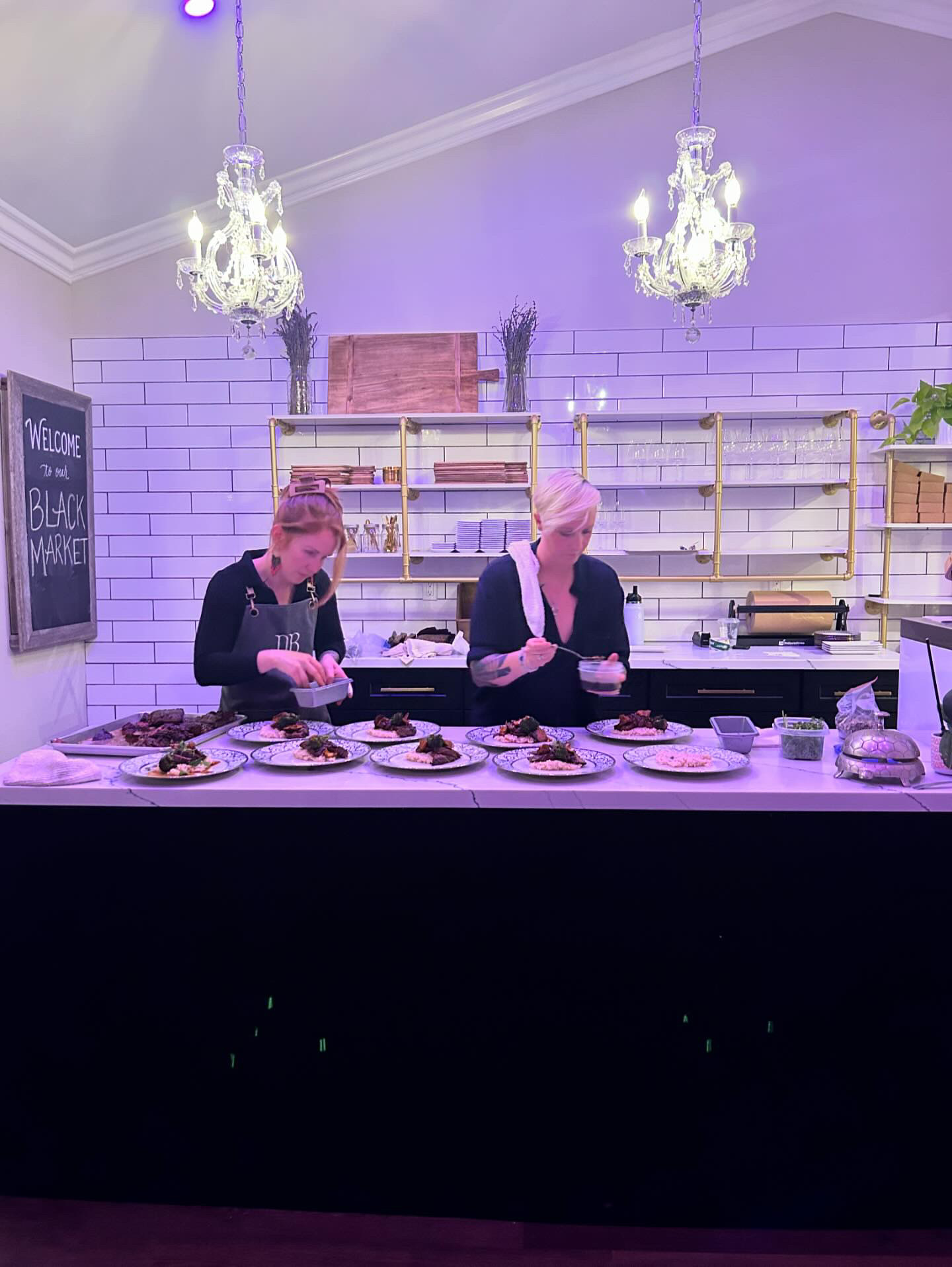
Great, appreciate you sharing that with us. Before we ask you to share more of your insights, can you take a moment to introduce yourself and how you got to where you are today to our readers.
Kelpful began after listening to a Bioneers podcast episode in late 2017 talking about seaweed farming operations happening on the East Coast. At the time, I was a bright eyed entrepreneur daylighting as a civil engineer, part of a Los Angeles based young entrepreneurs group, trying to figure out what ideas I wanted to pursue. As a Santa Cruz local who grew up surfing, diving, and stewarding the ocean, seaweed farming checked every box for me. Our roots actually began with a seaweed cooking class. This was the first official public thing we ever did as a company in 2019 and the turnout was incredible, including a journalist, and it led to our first article publication. I still have that article printed and framed. It was so much fun and joyful to educate our community in a hands on way and share a meal together. Education and serving our community has always been our top priority, and has always brought us the most joy. During the years we were making products, we had an overwhelming amount of requests to join us harvesting and to learn the practices, so in 2021 we formally launched our seaweed foraging tours. We continued to build from there and began developing curriculum for our local school districts, taking students on field trips, expanding into workshops that can be done anywhere, working with various organizations to educate and provide unique experiences primarily focused around seaweed, but including invaluable knowledge and experience on climate change, coastal resilience, sustainability, and ultimately building ocean stewardship. This is the piece of Kelpful that we have always been rooted in, and the piece that still remains with us outside of the business entity.
Our latest project, and one that is essentially the culmination of the Kelpful journey, is a book that will include the in depth exploration of our story, the publishing of the recipes of our products, how to source seaweed in the US, & detailed information on how to cook with each US species. We are hopeful to publish by the end of 2025.
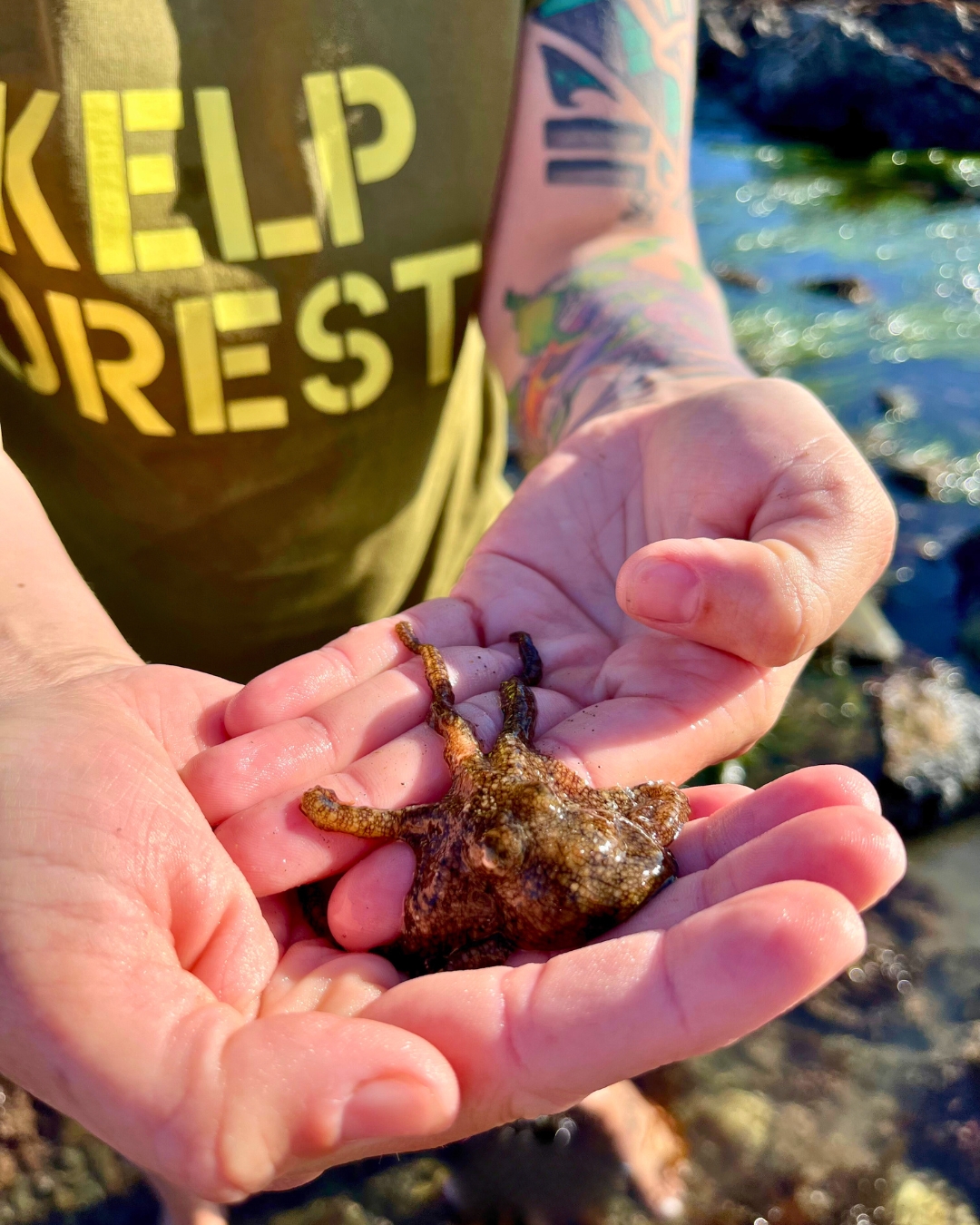
Can you tell us the story behind how you met your business partner?
Melissa and I met nearly a year after I founded Kelpful. I had created a Facebook group looking for folks interested in helping the seaweed farming movement, and a friend of hers sent her the group saying “look, there’s another crazy seaweed lady!” At the time, Melissa had launched her own seaweed business, and when she discovered she couldn’t have a farm, she began wild harvesting and playing with recipes and forcing it on all her friends & neighbors. We actually discovered that we had each listened to the same podcast at the same time and started separate seaweed businesses in the same town. We had one lunch meeting and agreed to merge our efforts.
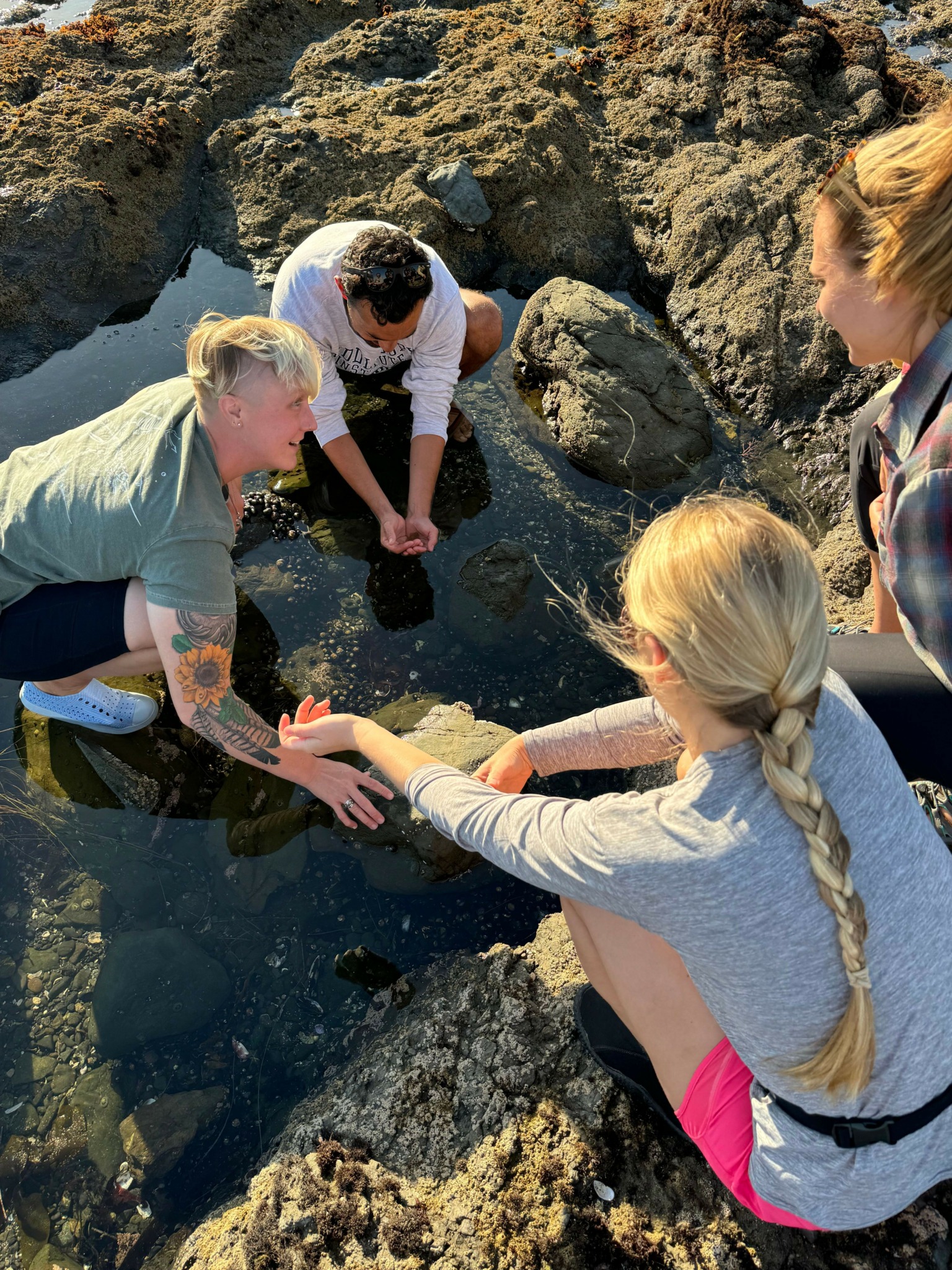
Does your business have multiple or supplementary revenue streams (like a ATM machine at a barbershop, etc)?
Today, in the economy we are currently facing, my biggest recommendation to any business owner is to have multiple streams of revenue. We made products and offered educational experiences, and we would not have been able to function without both. Even today, solely offering experiences, I have to have multiple varieties, and still make some seaweed seasonings in bulk in order to pay the bills. I work with many restaurants, who have had to expand even their offerings to include events and nightlife and workshops and sales of prepared food and swag, in order to make ends meet. There are very few, if any, businesses that can be sustainable doing only 1 thing. Ecommerce, educational offerings, varied services, are all crucial so that if one revenue stream is slow or fails, you have others in place. We are having to get more and more creative to even sustain, let alone thrive.
Contact Info:
- Website: kelpful.com
- Instagram: @kelpful_ca, @kaptainkelp
- Yelp: https://www.yelp.com/biz/kelpful-san-luis-obispo

